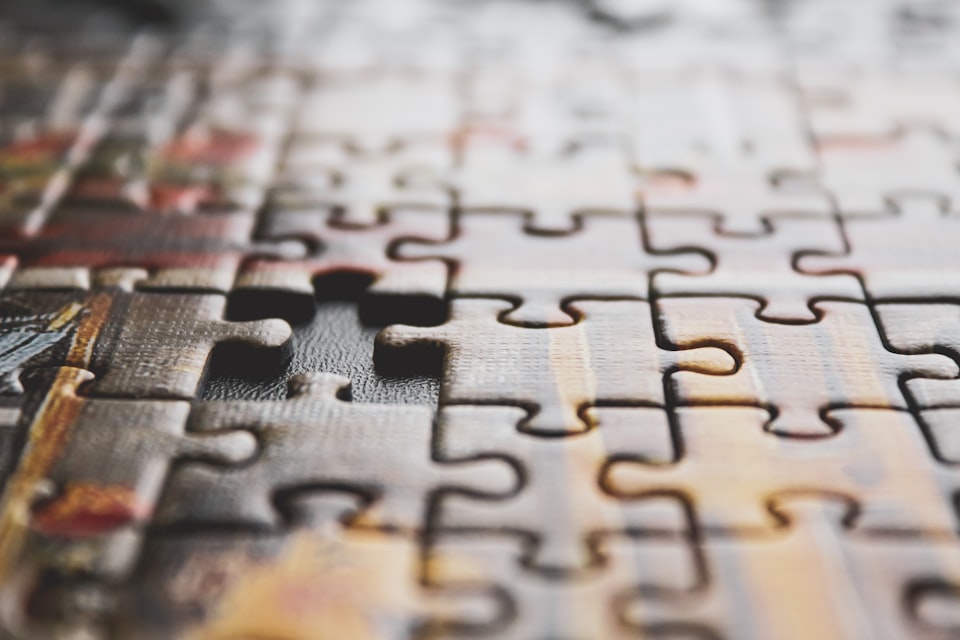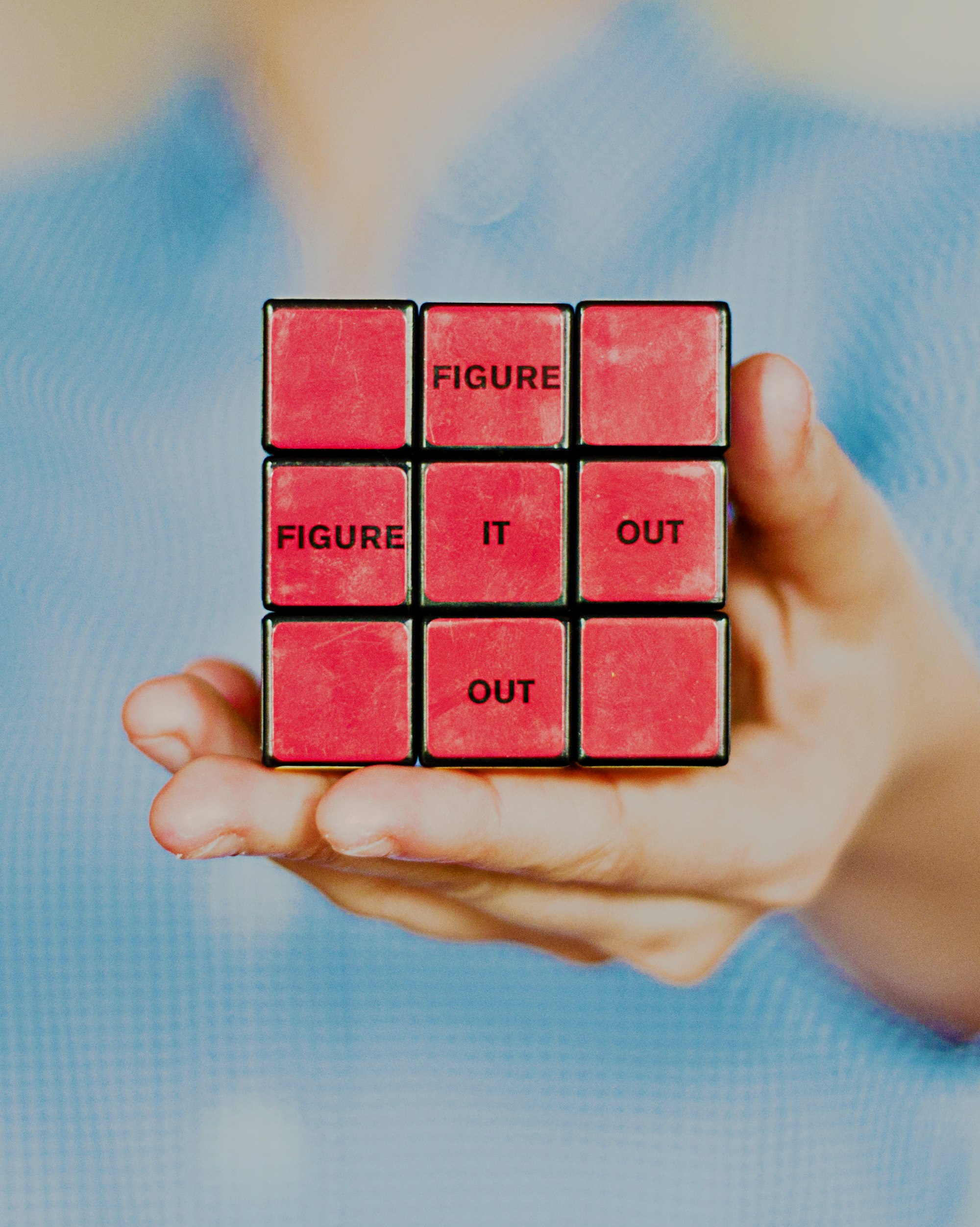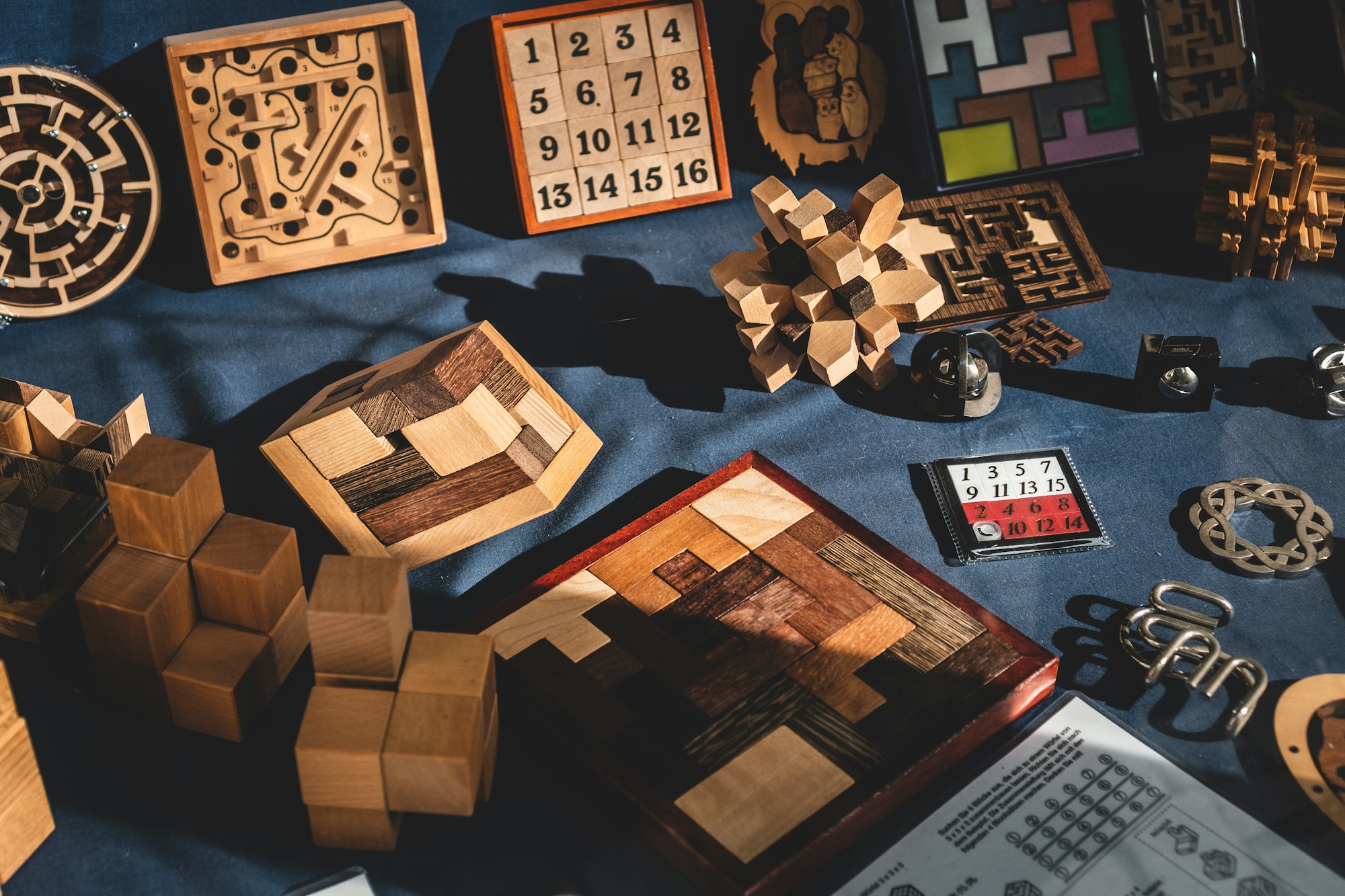Prompt 39: Solve

Each year for Christmas Vanessa gives me a jigsaw puzzle. This year was no different.
The puzzle I got this year features 8 famous faces, and over the past week, my youngest son and I have spent a little time each day working on putting it together.
A few days ago, as I was working on Elton John's face, I realised that I really loved the task and that it was an activity related to several prompts we've covered over the past 9 or so months.
It was a form of play, doing it with my son meant I was connecting, it is an activity that forced me to be still and rest (at least physically), and it was an activity that triggered happy memories from when I was a child (remember and first loves).
But in addition to all of these things - there was a real sense of satisfaction every time we put a piece in place.
Each piece of the puzzle presented a problem (where does it go) to be solved - and as it went into place, a little burst of joy and celebration was felt (often accompanied by a little yelp of excitement and a fist bump).
This week's prompt has flowed from my reflections - it is to solve something, whether it be a puzzle, a problem or something else that you find perplexing.

Why Problem Solving is Good for Us
I've already touched on some of the benefits of finding solutions, but there are quite a few other reasons why it's something well worth doing.
It Feels Good
Starting with my observation above - it can feel REALLY good to solve a problem.
That little burst of joy and the yelp of celebration that came with each puzzle piece slotting into place is something that comes our way, whether it's a little solved problem or a big one.
I've not found the science of this, but I suspect some endorphins are being released - it's satisfying!

It Builds Confidence
I saw this the other day while puzzling with my son.
When we opened the puzzle and spread a thousand pieces of the puzzle out over the table, his first reaction was, 'this is too hard', but something special happened as he found his first two pieces that fit together - he suddenly saw that he had what it takes to do it.
His (and my) confidence grew and by the time he'd finished putting Prince Harry's face together, he could have solved any problem in front of him!
While it was just a fun jigsaw puzzle that we were doing - the small wins of pieces in place had a more significant impact on us, and I suspect the confidence gained overflows into other areas of life.

Good for our Brain
Tackling a challenging problem or a puzzle benefits our brain health.
Not only do endorphins flow, but as we analyze, strategize, gather information, seek solutions and execute them, we're using all kinds of brain power.
Problem-solving helps us to think creatively, think laterally, adapt and change direction when we hit roadblocks – all of which are good skills and characteristics to develop.

It can be a Social Activity
Problem-solving can be a group activity - sometimes, involving others in the process is the key to finding solutions.
As we puzzled this week, it was fascinating to see how each of us tackled the problems in the jigsaw.
I started with the tried and true 'find all the edges and work your way in' strategy, while my son was about starting with the key features (the eyes of faces) and working his way out.
We worked brilliantly as a team and solved the puzzle so much faster because of it.
As we puzzled, our relationship strengthened.

It Leads to Better Lives
Perhaps the most apparent benefit of engaging in problem-solving activities is that when we solve problems that we and others face, it leads to a better life!
On a bit picture level, it is how we have survived as a species - we've got a long history of identifying problems and finding solutions to them.
On a smaller picture level, it is how we improve our situation in our own lives too, and it is why problem-solving is one of those skills that we teach our children in their early years.
But it's not something we should leave to the realm of childhood - we need to continue to exercise and hone our problem-solving skills!
This leads me to the task at hand and the first puzzle of the week....
What will you solve this week?

Perplexing Puzzles and Problems
You might want to do many things this week, but here are a few thoughts.
- do a jigsaw puzzle - not everyone's cup of tea but if it floats your boat...
- play a game - many games have an element of 'solving' to them. Cludo (how did the murder take place), Scrabble (what words can I make with these random letters), Wordle (how quickly can I guess today's word).
- solve a problem you have - maybe this week is about solving a problem you face. The problem might be big or small - related to your work, home life, education or anything else.
- solve a problem that someone else has - maybe the problem you tackle this week is one that a friend or a family member has. Or maybe it's a problem shared by everyone (or a larger group of people). If you've ever said 'someone should do something about xxxx' - maybe you're that someone!
- riddles - my kids love riddles and other brainteasers. I have another friend who solves maths equations as his hobby (not my cup of tea, but he loves it).
Anything goes - but put your mind to finding a solution to something, and you're doing something that could be valuable!
I'd love to hear what you come up with this week!
What will you solve?

Member discussion